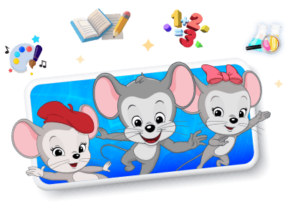What are the Different Styles of Homeschooling?

Learn about different homeschool styles so you can choose what’s best for you and your family.
As a new home educator, you may have an idea of what you want your homeschool experience to look like. You’ve likely read or heard about the many different homeschool styles and are trying to decide which best fits your family. Happily, you don’t have to choose just one–you can try them all or select elements from various styles that suit your lifestyle and homeschooling goals.
Homeschooling provides a unique opportunity to explore different approaches to education and shift your approach as needed. Whether you’re new to homeschooling or a homeschooling pro that needs a fresh approach, this overview of homeschooling styles can help point you in the direction that’s right for you and your family.
Traditional Homeschooling
Traditional homeschooling is the most common and straightforward approach to homeschooling. It involves the home educator taking full responsibility for their child’s education and sometimes uses textbooks and curriculum materials that are aligned with state or national standards. This approach usually involves a structured daily schedule, with lessons in core academic subjects such as math, science, language arts, and social studies.

One of the benefits of traditional homeschooling is that it allows home educators to customize their child’s education to fit their individual needs and learning style. However, some home educators find it challenging to develop lesson plans and teach effectively in all subjects as their students get older. There are many resources available to help.
Learn more about traditional homeschooling.
Montessori Homeschooling
Montessori homeschooling is based on the educational philosophy of Maria Montessori. She was an Italian physician and educator in the late 19th century who focused on how young children learn.
Montessori education emphasizes a child-centered approach that encourages independence, self-direction, and hands-on learning. Montessori materials are designed to be self-correcting, allowing children to learn through exploration and discovery.

In a Montessori homeschooling environment, children are free to choose their activities and work at their own pace. The focus is on developing a love of learning and fostering a child’s natural curiosity. Home educators who choose this approach often create an inviting environment in their home that includes Montessori materials and activities.
Learn more about Montessori homeschooling.
Roadschooling
Roadschooling is a unique homeschooling approach that involves traveling as a family while continuing to educate children. This approach is popular among families who want to explore different parts of the world while still providing their children with a quality education.
Roadschooling can involve a combination of traditional homeschooling and experiential learning, with children learning about history, science, and culture through hands-on experiences.

Successful roadschooling requires a high level of flexibility and adaptability. However, it can be an enriching experience for children and families by allowing them to explore new places and cultures while still receiving a quality education.
Learn more about roadschooling
Charlotte Mason Homeschooling
Charlotte Mason was a British educator who developed an educational philosophy based on the idea that children are born with innate curiosity and a natural love of learning.
The Charlotte Mason homeschooling style is often preferred by families seeking a holistic approach to education. The approach focuses on developing good life habits and providing children with a broad education in subjects such as literature, history, science, and art.
Charlotte Mason homeschoolers utilize high-quality literature known as “living books.” These engaging books are written by an author who is passionate about the subject and sparks the imagination of the child. The approach emphasizes the importance of narration, which involves children telling back what they have learned in their own words.

In a Charlotte Mason homeschooling environment, children are encouraged to read extensively, spend time outdoors for nature study, and engage in artistic endeavors. The hope of Charlotte Mason homeschoolers is to instill a love of literature, emphasize a connection to nature, and infuse the child with an appreciation of the arts.
Learn more about Charlotte Mason homeschooling.
Waldorf Homeschooling
Waldorf homeschooling is based on the educational philosophy of Rudolf Steiner. This approach emphasizes a holistic, child-centered education that focuses on the development of the whole child–body, mind, and spirit.
The Waldorf method encourages minimal use of technology and puts low emphasis on academics for young children. If you are interested in this homeschooling approach, be prepared to instill daily routines and rhythms and curate a nurturing, simple setting for your school days.

Waldorf homeschoolers spend time outside, move their bodies as part of learning, and engage in creative activities. Waldorf education emphasizes the arts as a means of engaging children in the learning process and encourages imaginative play and exploration of the natural world.
Learn more about Waldorf homeschooling.
Worldschooling
Worldschooling is a relatively new homeschooling approach that has gained popularity in recent years. This approach involves traveling as a family to different parts of the world and learning about different cultures, languages, and customs.
The goal for worldschooling families is to provide a global education that prepares children to engage successfully in a connected and rapidly changing world. Through travel and exposure to different cultures, children develop empathy, open-mindedness, and a deeper understanding of the world around them.

While it requires a significant amount of planning and preparation, the benefits of worldschooling are numerous, including the opportunity for children to develop a global perspective, gain language skills, and engage in hands-on learning experiences.
Learn more about worldschooling.
Unschooling
Unschooling is known for its child-led approach, with home educators letting children pursue their own interests and passions and shape the direction of learning. While it sounds highly relaxed and unstructured, unschooling is an organized approach to homeschooling. Think of it as homeschooling where the child picks the topics and duration of time spent on them.
Unschooling honors different learning styles and encourages home educators to follow their child’s preferred method of learning, whether it’s outdoors exploring, indoors reading, or combining both and mixing in games and an online curriculum program.

While unschooling and Montessori homeschooling follow a similar child-led approach to learning, there are a few key differences between the two. Unschooling does not include a curriculum, while Montessori offers curriculum and suggested manipulatives. Montessori typically offers slightly more structure with a designated learning time. Unschooling leaves the structure of the day up to the child, with some topics deeply explored and others bypassed completely if the child isn’t interested in them.
A common misconception about unschooling is that it’s illegal. However, it is a legal form of homeschooling in every state as long as home educators adhere to the laws and requirements of their state.
Unit Studies
Homeschooling with unit studies is an educational approach that focuses on integrating various subjects into cohesive units of study. In this method, students explore a specific theme or topic in-depth, allowing for a comprehensive understanding of the subject matter. Instead of dividing subjects into separate lessons, unit studies combine subjects such as history, science, literature, and even math and art, into a unified curriculum. By digging deeply into a subject, students can develop a more profound understanding and appreciation for the material.

The key characteristic of unit studies is their interdisciplinary nature. For example, if a unit study focuses on ancient Egypt, students may research into the history of the civilization, read literature from that era, study the science behind pyramid construction, learn about the geography of the region, explore the art and architecture of the time, and even incorporate math by calculating the angles of pyramids.
Learn more about unit studies.
Classical Homeschooling
Classical homeschooling is an educational approach that draws inspiration from the classical model of education that was prevalent in ancient Greece and Rome. It focuses on teaching students based on the three stages of learning known as the Trivium: the grammar stage, the logic stage, and the rhetoric stage.
Classical homeschooling places a strong emphasis on classical languages, primarily Latin and Greek. The study of these languages helps students understand the roots of English, enhances vocabulary development, and cultivates an appreciation for classical literature.

The classical approach also incorporates the study of classical texts and works of art to provide students with a rich cultural and intellectual foundation. Students read and analyze ancient Greek and Roman literature, as well as influential works from other historical periods. They study classical music, art, and architecture to gain an understanding of the historical and cultural context of these forms of expression, as well as a variety of other topics and subjects.
Learn more about classical homeschooling.
Eclectic Homeschooling
Eclectic homeschooling is an educational approach that combines elements from various educational philosophies, methods, and resources. It is a flexible and personalized approach that allows homeschooling families to tailor their curriculum to meet the unique needs and interests of their children.
In eclectic homeschooling, parents have the freedom to select different teaching materials, resources, and techniques from a wide range of educational approaches. They can draw from traditional textbooks, online courses, educational software, hands-on activities, and real-world experiences to create a customized learning plan for their children.

One of the primary advantages of eclectic homeschooling is its adaptability. Parents can choose different teaching methods for different subjects or even for individual children within the same family. For example, they may use a structured curriculum for math but incorporate project-based learning for science or incorporate Montessori-inspired activities for younger children.
Learn more about eclectic homeschooling.
Support Your Homeschool with ABCmouse and Adventure Academy
Our digital learning programs are designed by curriculum experts to assist your homeschool and children ages 2 through 13. ABCmouse is a comprehensive online educational platform for children ages 2-8, while Adventure Academy focuses on children ages 8-13. Both programs provide access to lessons on reading, language arts, math, sciences, social studies, and more. Learn more about how each program can enhance your homeschool below.
ABCmouse and Homeschooling
ABCmouse offers over 10,000 learning activities and more than 850 lessons for children, plus a large digital library of books and educational puzzles, songs, activities, and worksheets. The program encourages self-paced learning with motivating rewards and includes progress tracking, which allows home educators to monitor time spent on certain subjects and the number of activities completed.

Then just $14.99/mo. until canceled
As a paid add-on to regular subscriptions, home educators can access the Assessment Center, which allows parents and caregivers to test children on their knowledge, determine successes and struggles, and receive recommended lessons based on assessments.
ABCmouse provides a robust curriculum that can supplement other early learning lessons. It’s trusted resource that’s been downloaded over 10 million times and has a 4.5-star average out of 831.4K ratings.
Adventure Academy and Homeschooling
Adventure Academy combines an interactive world with a curriculum covering reading, language arts, math, science, and social studies. With quests, games, and educational videos and activities, learning becomes an epic journey that motivates kids to explore various topics.
For homeschooling families, Adventure Academy offers an engaging, flexible learning experience that can supplement other educational materials. The program features thousands of activities created by curriculum experts and covers all major academic domains.
Parents and caregivers can choose academic difficulty levels and track each child’s progress, seeing time spent in Adventure Academy, activities completed, and subjects studied.
Adventure Academy emphasizes key topics such as reading comprehension, vocabulary development, mathematical operations, fractions, world geography, American history, physical science, life science, earth science, and scientific inquiry.
For more information, visit AdventureAcademy.com.
-
What Skills Should Your Preschooler Have Before They Start School?
Ensure your preschooler is ready for school with list of essential skills. Discover key abilities for a smooth transition to preschool.
-
10 Strategies for Helping a Struggling Reader
“Discover key signs of a struggling reader, including difficulties in decoding, comprehension, fluency, and more. Find practical strategies and activities to support and improve your child’s…
-
10 Easy Steps to Help Teach a Child to Read
Explore ABCmouse’s approach to teaching children to read in 10 easy steps, tailored for various age groups. From daily reading habits to advanced concepts, make reading…
-
Learning Styles Debunked
Discover the shift in educational perspectives as we explore the myth of learning styles. Understand why this once-popular teaching approach is questioned and how educators are…
-
How Educators Feel About ChatGPT in the K-12 Classroom
Explore how homeschool educators and schoolteachers perceive ChatGPT’s role in K-12 education, from enhancing learning to concerns about cheating and dependence on technology. Insights from a…







